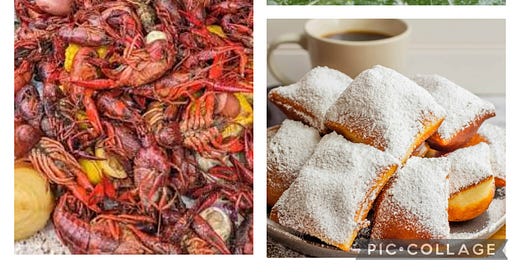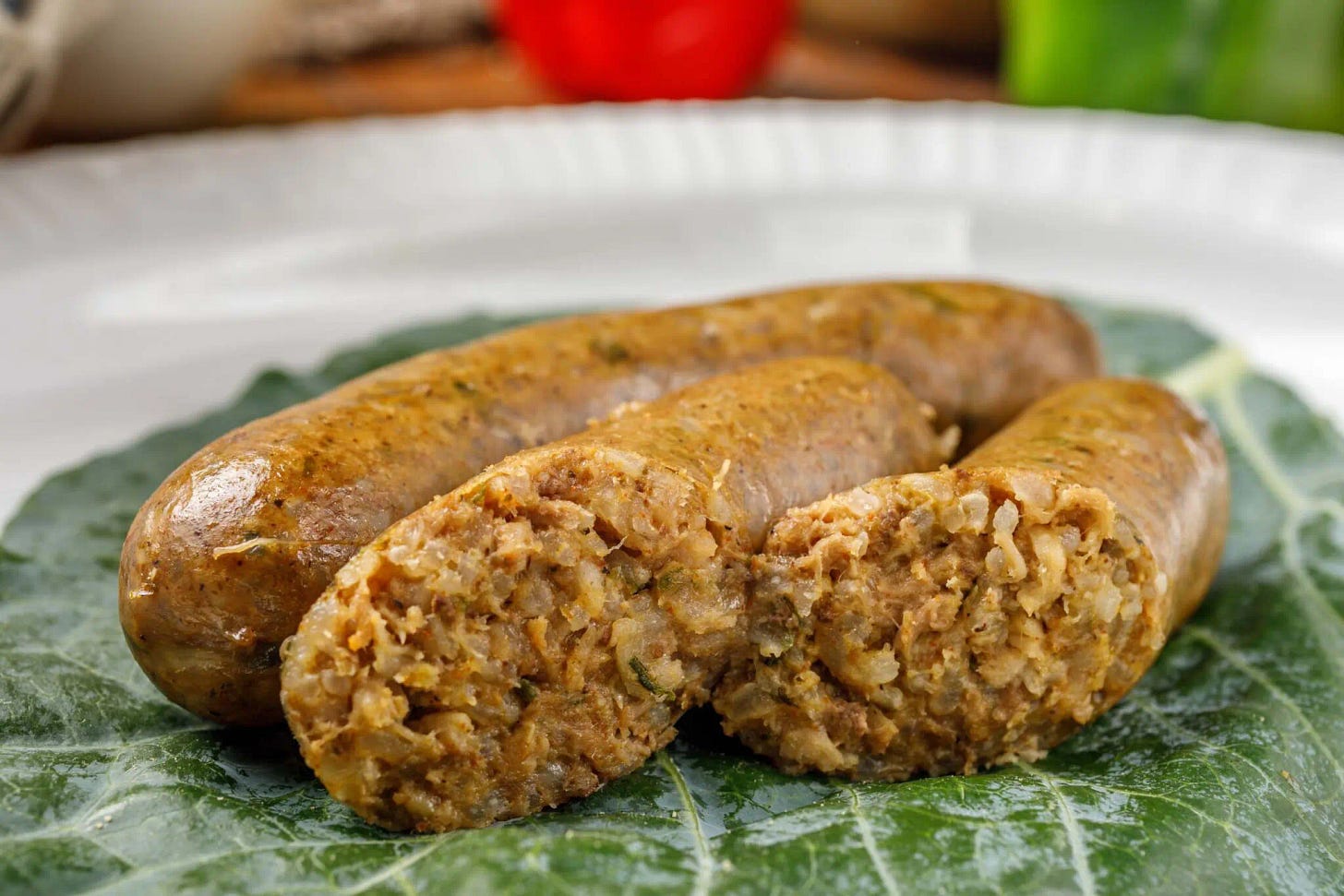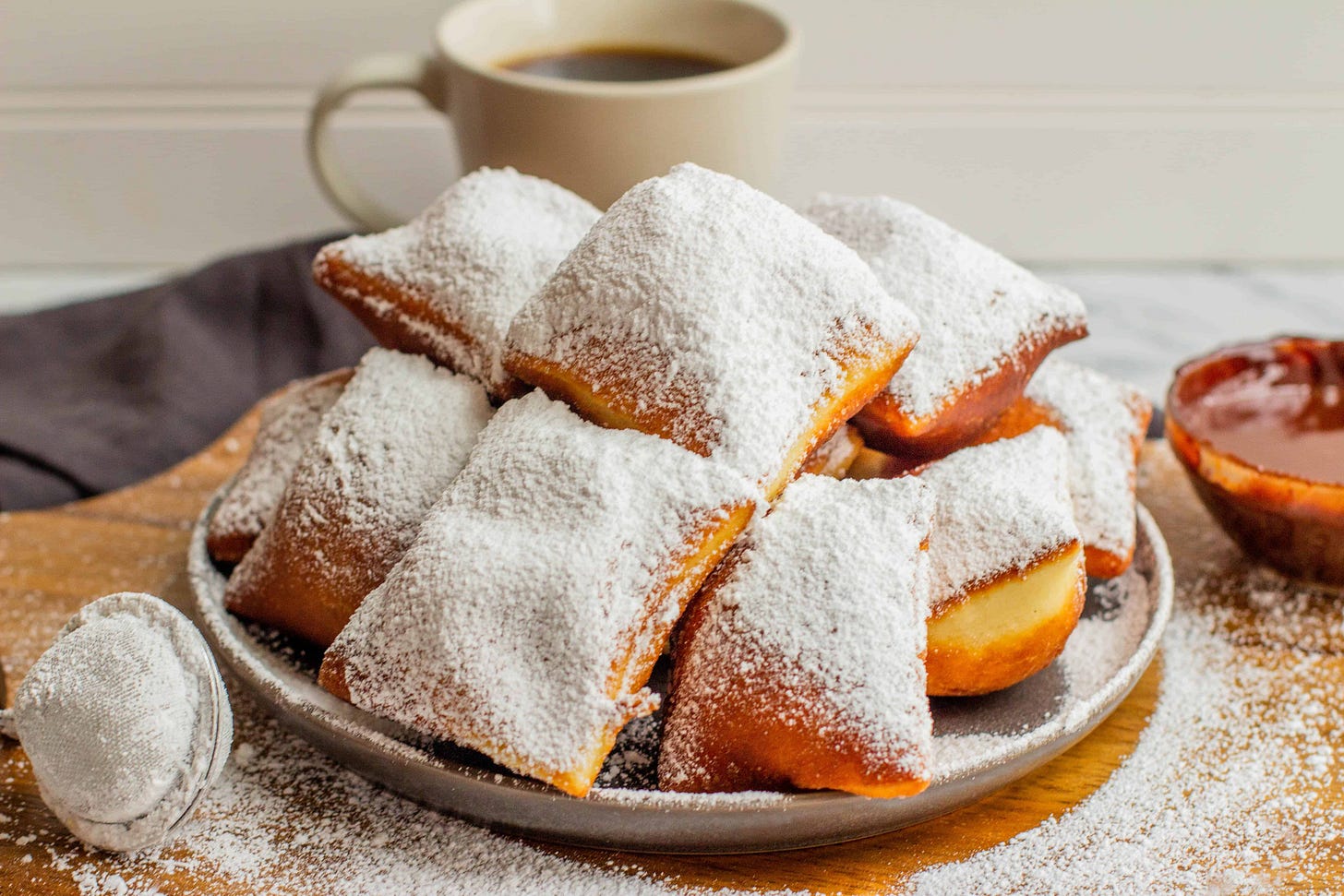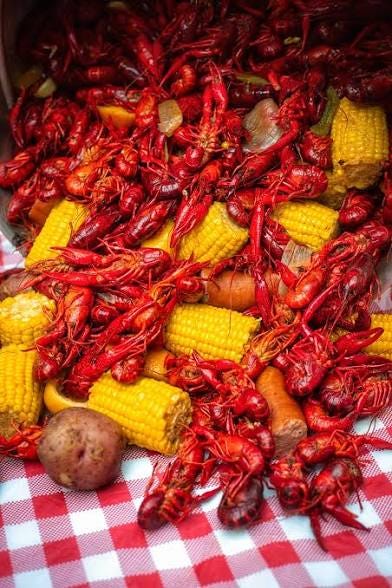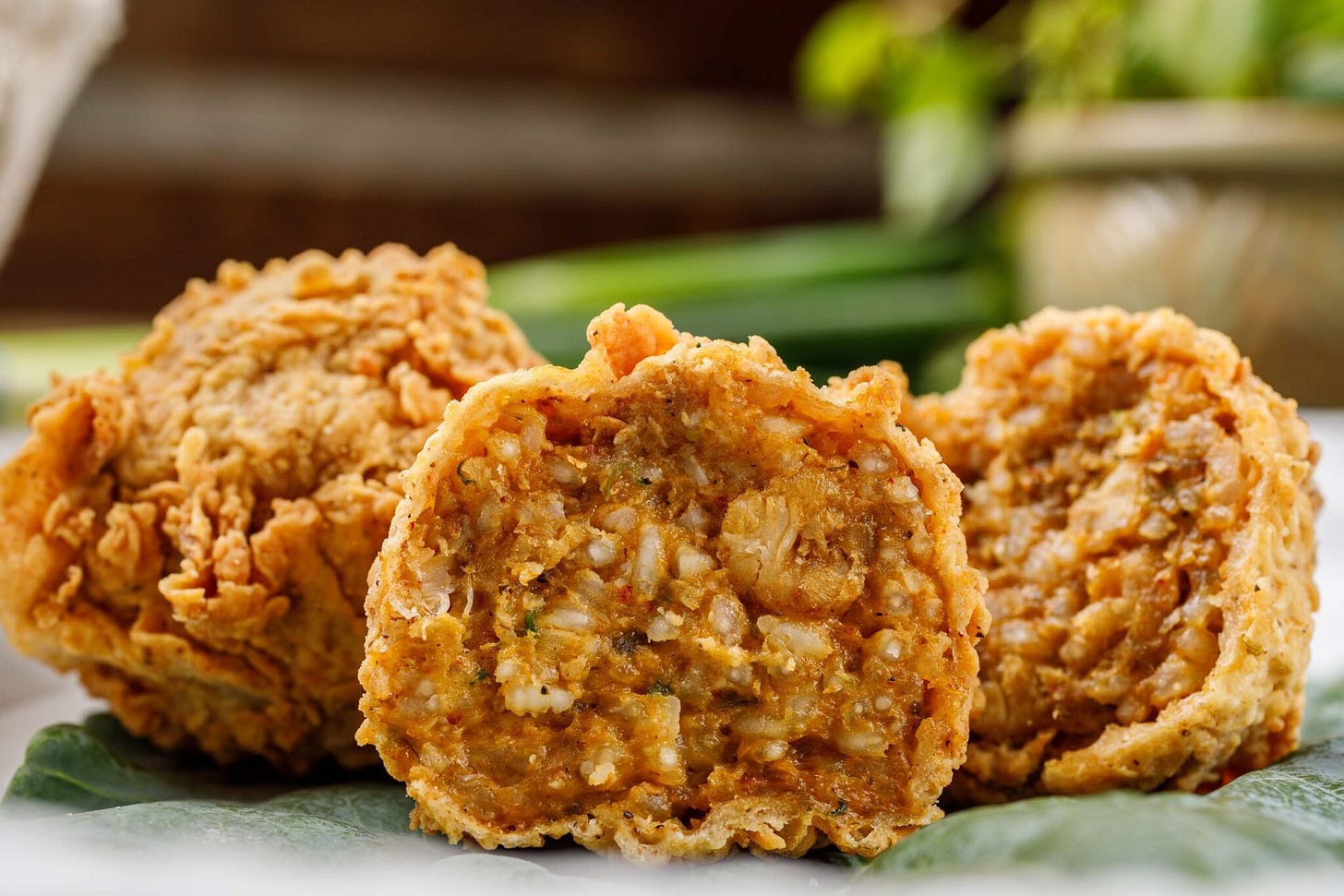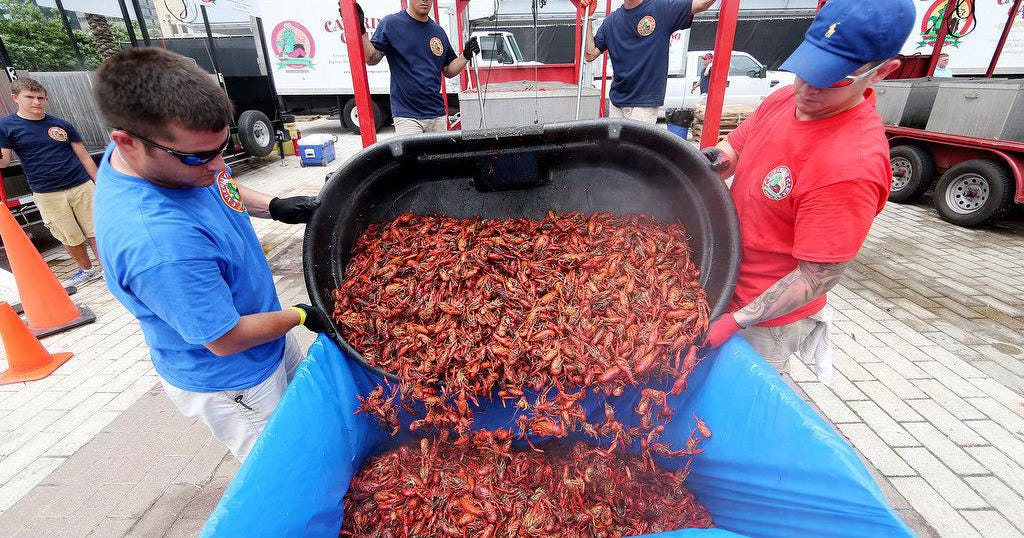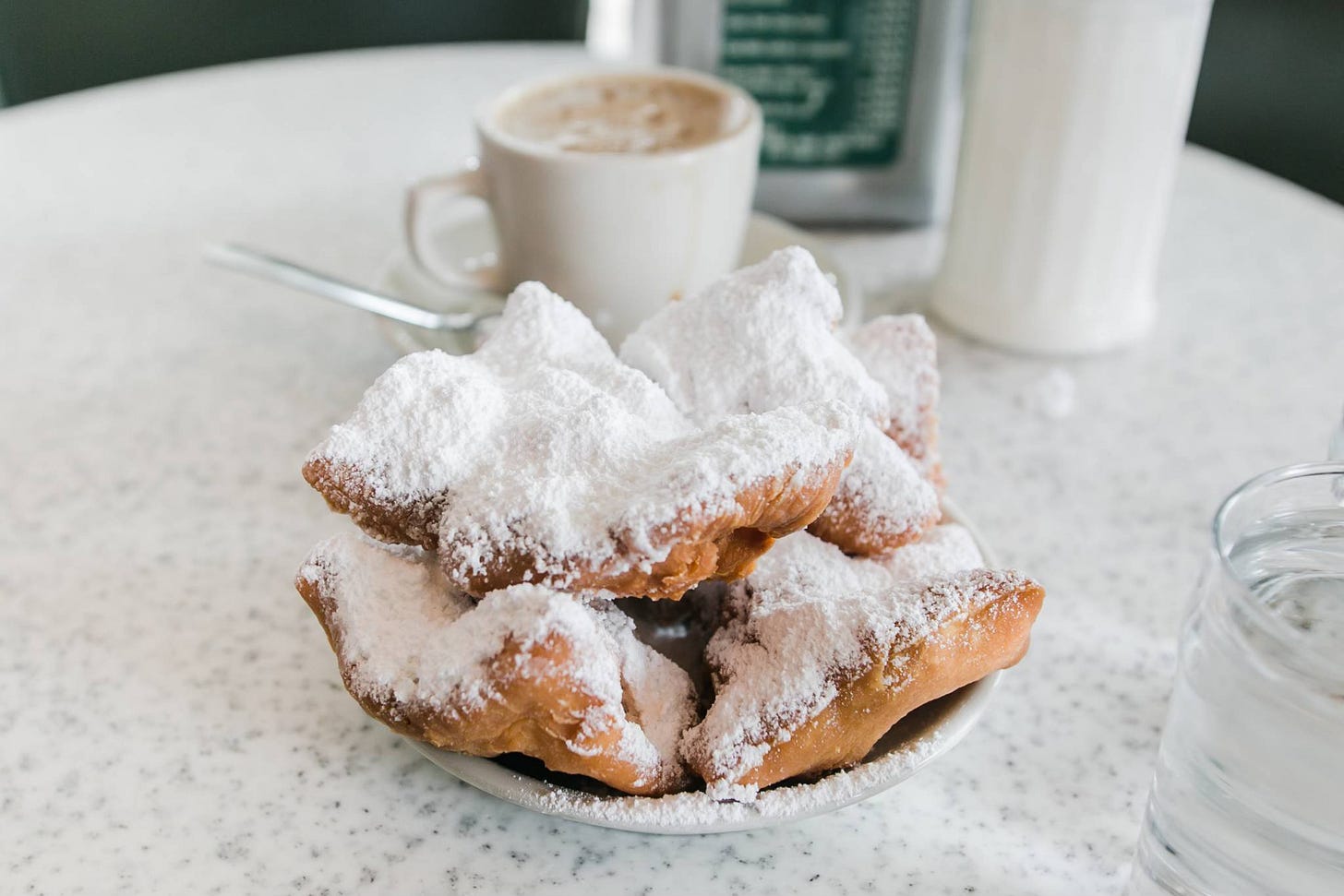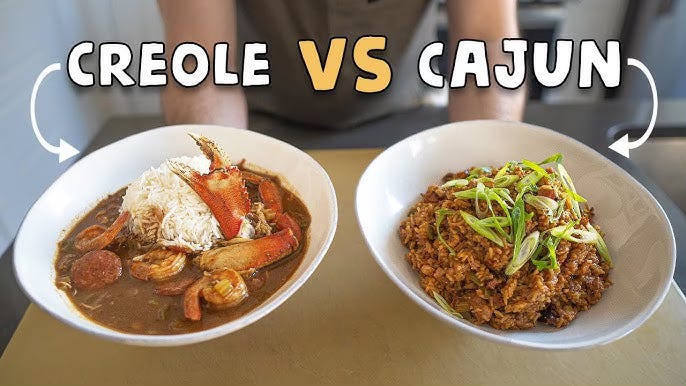Boudin, Beignets, and Boiled Crawfish: Louisiana Food as Cultural Identity
By The Bayou Insider Staff
There’s a certain smell that lingers in the Louisiana air during spring—a mingling of cayenne, garlic, and lemon boiling over an open flame. Not far away, the rhythmic sound of zydeco music pulses through a speaker, and a picnic table lined with newspaper is slowly disappearing under a mountain of bright red crawfish.
This isn’t just a meal. It’s a memory in the making. It’s culture served hot and messy.
In Louisiana, food is far more than sustenance—it’s identity. Passed down through generations, celebrated in festivals, and rooted in history, our cuisine speaks to who we are as a people. Among the many iconic dishes that define our culinary landscape, three stand out as staples of both tradition and taste: boudin, beignets, and boiled crawfish.
Boudin: The Butcher’s Gift to Cajun Culture
For many Louisianans, the journey into boudin begins at a gas station or meat market off the beaten path. Inside, behind the counter, are plump sausage links that have nothing to do with your typical grocery store fare. Boudin is a Cajun creation—part sausage, part rice dressing—made with pork, liver, onions, and spices, all encased and steamed to perfection.
Rooted in French and German sausage-making traditions, boudin represents the resourcefulness of early Acadian settlers. Nothing was wasted. Every scrap of meat had a purpose, and rice was the perfect filler to stretch meals for large families.
Today, you’ll find boudin balls served fried at football games, smoked boudin at roadside BBQ joints, and even gourmet takes in upscale restaurants. In Scott, Louisiana—dubbed the "Boudin Capital of the World"—you can follow a dedicated boudin trail, sampling recipes that vary from spicy to mild, coarse to creamy.
But boudin isn’t just food—it’s cultural shorthand. It says, “We’re proud of where we come from.”
Beignets: From French Quarter Treat to Statewide Staple
Step into Café du Monde in New Orleans, and you’ll see powdered sugar floating through the air like coastal fog. Beignets—light, airy squares of fried dough—have become synonymous with Louisiana indulgence. But their roots trace back centuries to French settlers who brought the concept of deep-fried dough pastries to the New World.
Originally considered a breakfast food, beignets have transcended mealtime. They’re a street food at festivals, a sweet ending to date night, and a comforting snack on a Sunday morning. Whether eaten at a bustling café or homemade with family, they evoke joy and hospitality.
As Louisiana’s culinary identity has grown, so has the beignet’s role. Today, you can find versions stuffed with fruit, drizzled with chocolate, or made savory with crawfish or cheese.
It’s proof that even something as simple as fried dough can evolve without losing its soul.
Boiled Crawfish: A Springtime Ritual
If there’s a dish that brings Louisiana together, it’s crawfish.
More than any other food, boiled crawfish is a shared experience. It’s not eaten alone. It’s a social ritual that spans generations—one where people gather around long tables, roll up their sleeves, and dig in with their hands. The crawfish boil is the great equalizer. Everyone gets messy. Everyone tells stories. Everyone leaves full.
Crawfish has long been a part of the Louisiana diet, once considered a "poor man’s food." Today, it’s the centerpiece of backyard parties, fundraisers, and church gatherings. Every boil is different—some loaded with mushrooms and sausage, others minimalist and spicy.
Crawfish also carries serious economic and ecological weight. Louisiana is the largest producer of crawfish in the United States, with farms and wild harvesters driving a multi-million-dollar industry. A late spring without crawfish isn’t just disappointing—it’s disruptive.
In the end, it’s not about the crustacean. It’s about communion.
More Than a Meal: A Shared Identity
What ties boudin, beignets, and boiled crawfish together isn’t just ingredients—it’s meaning.
These foods are deeply personal. They’re the smell of your grandmother’s kitchen. The taste of summer weekends. The sound of laughter around a table. They remind us of who we are and where we come from—French, Spanish, African, Native, Caribbean, and beyond.
Louisiana’s food culture is a blend of hardship and hope, scarcity and celebration. It has emerged from colonial survival and plantation struggles, through floods and storms, with flavors that endure.
And in a state where race, class, and politics often divide, food is the great unifier. It’s a language everyone speaks.
Tradition Meets Tomorrow
As Louisiana continues to evolve, so too does its cuisine. Young chefs are pushing boundaries—infusing traditional dishes with modern flair while honoring the roots that make them special.
Festivals like the Boudin Festival in Scott or the Breaux Bridge Crawfish Festival ensure these foodways aren’t forgotten. Local culinary schools and cultural nonprofits are working to preserve recipes and teach the next generation.
Still, there are challenges. Climate change affects crawfish harvests. Commercialization risks watering down authenticity. But there is a hunger—literal and cultural—to keep our food traditions alive.
Conclusion: Louisiana on a Plate
Boudin. Beignets. Boiled crawfish. Three dishes. One identity.
To eat in Louisiana is to live its history, feel its resilience, and taste its soul. So the next time you sit down at a table lined with newspaper or powdered in sugar, know that you’re not just having a meal. You’re participating in something sacred.
Want More Stories Like This?
At The Bayou Insider, we celebrate the traditions that make Louisiana unique. From the food on our plates to the festivals in our towns, we're telling the stories that others overlook.
📬 Subscribe, share, and support local storytelling.
🦞 Got a favorite recipe or food tradition? Drop us a line—we'd love to feature it!
Cajun vs. Creole: Understanding Louisiana’s Distinct Culinary Traditions
Louisiana’s cuisine is as rich and diverse as its history, and at the heart of this flavorful culture are two distinct culinary traditions: Cajun and Creole. For many, these terms are used interchangeably, but they represent unique cultures, histories, and cooking styles that tell the story of Louisiana’s melting pot of peoples and traditions. Understan…

